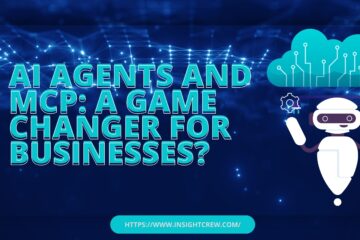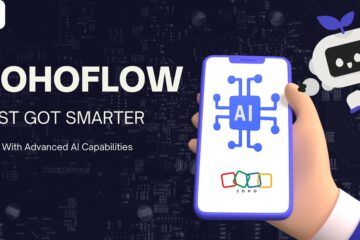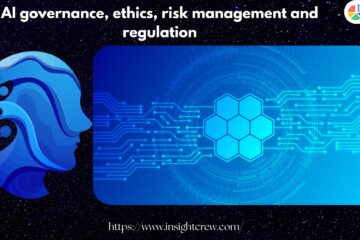Data scientists have been labouring for years, organising enormous databases, finding patterns by hand, and creating predictive models. It’s exhausting and frequently overwhelming, much like looking for a single grain of sand on a beach. AI is already acting as a potent ally, accelerating the data science lifecycle, automating tedious tasks, and revealing previously undiscovered insights. Imagine providing data scientists with a crystal ball, a powerful magnifying glass, and a fast data-crunching engine all in one.
In this blog, we will explore the top ten advantages of combining AI and data science, demonstrating how this potent combination is not only enhancing current procedures but also radically transforming various industries, including healthcare, banking, and more. Prepare to discover how artificial intelligence is turning data from a static archive of the past into a dynamic instrument for forecasting the future, improving decision-making, and spurring previously unheard-of creativity. Let’s unleash the possibilities!
In Data Science, What is AI?
The creation of systems that can replicate human cognitive capacities to carry out activities like learning, problem-solving, and decision-making is the fundamental definition of artificial intelligence. Although this covers a broad range of methods, the most pertinent ones in data science are:
- Algorithms that learn from data without explicit programming are known as machine learning (ML) algorithms. They make forecasts, spot trends, and get more accurate over time.
- Deep Learning (DL): A branch of machine learning that uses multi-layered artificial neural networks to analyse data more intricately. Imagine it as machine learning on steroids, ready to handle more complex issues.
- Computers can now comprehend, interpret, and produce human language thanks to natural language processing, or NLP. This is essential for sentiment analysis, conversational AI development, and text data analysis.
The Top 10 AI Advantages for Data Science
- Automation of Preprocessing and Data Gathering
In every data science endeavour, collecting and preparing data can be a significant bottleneck. Data extraction from a variety of sources, including websites, databases, and APIs, can be automated with AI-powered solutions. Additionally, AI systems can handle missing numbers, outliers, and discrepancies with little assistance from humans by automatically cleaning and transforming data. Imagine not having to write a single line of manual code to automatically scrape product reviews from e-commerce sites, clean the text, and organise it for sentiment analysis.
For instance, a retail business gathers consumer opinions via emails, social media, and product evaluations. Without human assistance, AI-powered solutions such as sentiment analysis engines and web scrapers automatically gather, clean, and classify this data to determine consumer preferences.
- Improved Visualisation and Analysis of Data
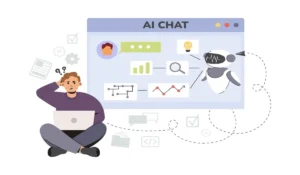
AI systems are very good at identifying intricate patterns and irregularities in large datasets that the human eye may miss. They can sift through enormous volumes of data, uncover hidden connections, and create insightful visuals that convey an engaging narrative. AI can, for instance, examine past consumer purchases to pinpoint specific client groups, visualise their purchasing patterns, and adjust marketing strategies accordingly. Imagine having a detective powered by AI who finds hidden evidence in your data.
For instance, a marketing team examines consumer demographics and purchasing trends using AI-driven analytics platforms like Tableau or Power BI. By producing interactive heatmaps and graphs, the AI assists companies in efficiently customising their advertising efforts.
- Forecasting and Predictive Modelling
Accurate forecasting models are powered by AI algorithms. To forecast future trends, anticipate consumer behaviour, and improve corporate decisions, they can learn from past data. AI-powered prediction models can offer insightful information that improves results, whether they are used to forecast demand, estimate sales, or evaluate risk. Retailers, for example, can optimise inventory and prevent stockouts by using AI to forecast which products will be in high demand over the Christmas season.
For instance, to improve sales and client retention, e-commerce sites such as Amazon employ AI-powered prediction algorithms to examine past purchase data and recommend items that customers are likely to buy next.
- Better Feature Engineering
A crucial stage in creating successful machine learning models is feature engineering, which is the act of choosing and altering pertinent variables. By automatically recognising and choosing the most significant elements from a dataset, artificial intelligence (AI) can automate this procedure. By integrating already-existing variables, it can also produce new characteristics that enhance model performance. Consider an AI system that can automatically determine the main causes of customer attrition so you can concentrate your retention efforts on the most vulnerable clients.
As an illustration, a fintech business optimises its machine-learning model for risk assessment by using AI to automatically discover the key factors influencing loan approvals, such as credit history, spending patterns, and income stability.
- Processing Data in Real Time
The capacity to analyse data in real-time is becoming more and more crucial in the fast-paced world of today. AI makes it possible to analyse and interpret flowing data in real-time, which helps businesses to react swiftly to shifting circumstances. Financial firms, for instance, utilise AI to identify fraudulent activity, track transactions in real time, and stop losses. Imagine having a security guard powered by AI that continuously watches your data and alerts you to any questionable activities.
For instance, real-time AI analysis of market movements by stock trading systems allows traders to make profitable transactions based on immediate insights rather than postponed manual analysis.
- Data Insights using Natural Language Processing (NLP)
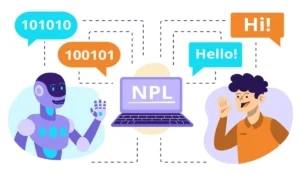
Emails, social network posts, client reviews, and other important data are all stored in text format. By allowing computers to comprehend, analyse, and derive insights from human language, natural language processing (NLP) approaches unlock this data. Among the NLP applications that can offer important insights into consumer perceptions, market trends, and competitive intelligence are sentiment analysis, topic modelling, and text summarisation. NLP, for example, can be used by a business to examine client feedback and pinpoint areas in which its goods or services require enhancement.
For instance, a customer support chatbot uses natural language processing (NLP) to examine hundreds of support tickets to identify typical problems. By enhancing product documentation and frequently asked questions, this chatbot assists companies in proactively addressing consumer concerns.
- Fraud Prevention and Anomaly Detection
AI algorithms are perfect for spotting fraud and stopping other forms of harmful activities since they are skilled at seeing odd patterns and anomalies in data. They can identify any departures from the typical behaviour of a system or process. This is especially helpful in sectors where fraud is a major problem, such as banking, healthcare, and insurance. AI can, for instance, examine credit card transactions to spot questionable trends and stop fraudulent purchases. Example: To stop possible fraud in real time, banks employ AI-powered fraud detection systems that identify odd transaction patterns, including an abrupt high-value transfer from an unknown place.
- Excessive customisation
Today’s consumers demand individualised service. By evaluating individual consumer data and customising goods, services, and marketing messages to each customer’s unique requirements and preferences, artificial intelligence (AI) helps companies to provide hyper-personalised experiences. AI powers personalised content, targeted advertising, and recommendation systems. Consider Amazon making product recommendations based on your previous purchases or Netflix making movie recommendations based on your viewing history.
For instance, Netflix provides a personalised viewing experience that keeps viewers interested by suggesting TV series and films based on a user’s viewing interests and history.
- Decision-Making Automation

Based on data analysis, AI systems can make decisions on their own, freeing up human workers to concentrate on more strategic work. Examples of how AI is facilitating automated decision-making include automated customer service, driverless cars, and algorithmic trading. AI-powered trading algorithms, for example, can automatically execute trades in financial markets depending on predetermined rules and market conditions.
For instance, self-driving cars make split-second decisions to navigate safely without human assistance by using AI to analyse traffic conditions, pedestrian movements, and road signs.
- Scalability and Efficiency
Data science operations are more scalable and effective thanks to AI’s ability to handle massive data volumes and automate difficult activities. With the help of pre-built AI models and enormous computing resources, cloud-based AI platforms enable businesses to expand their data science skills without having to make large infrastructure investments. Imagine being able to scale up or down a virtually limitless pool of computer power as needed.
For instance, companies may process large datasets using cloud-based AI platforms like Google Cloud AI and AWS without having to invest in costly on-premise hardware, and operations can be easily scaled up.
In conclusion
By improving analytics, automating procedures, and facilitating more intelligent decision-making, AI is revolutionising data science. Predictive modelling, anomaly detection, and intelligent automation give businesses using AI a competitive edge.
We provide data science and machine learning consulting to help businesses realise the full promise of AI. We offer customised solutions to optimise the value of your data, whether you require AI-driven insights, automated workflows, or sophisticated analytics.
Are you prepared to include AI in your data strategy? Check out our data science and AI consulting services.
